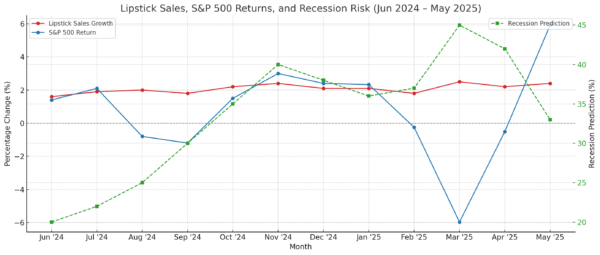What Is a Certified Public Accountant (CPA)?
Accountants are an integral part of any business. They’re the individuals responsible for maintaining financial record keeping and reporting. But not just any accountant can take the helm of a company’s books. For public companies especially, that individual needs to be a certified public accountant (CPA). CPAs are professionals certified by the American Institute of Certified Public Accountants (AICPA). They receive this designation after passing the CPA examination and fulfilling all required education and work experience.
It takes hard work and exceptional knowledge of accounting best practices to become a CPA. Even beyond that, CPAs need to continually maintain their accreditation over time. In doing so, they distinguish themselves from general accountants and other financial professionals. More importantly, companies can trust a CPA with their most important and essential financial documents with certainty.

How to Become a CPA
Becoming a CPA is no simple task and requires numerous hours of study, not to mention passage of the Uniform CPA Examination. The basic criteria for examination include 150 hours of accounting coursework and a bachelor’s degree in business administration, finance or accounting. However, many states have their own stipulations that factor into a person’s qualification to sit for the exam.
Two-tier states such as Minnesota allow would-be CPAs to sit for the Uniform CPA Examination after completing 120 hours of coursework. The stipulation is that they must finish an additional 30 hours of coursework post-examination.
Moreover, some states, such as Illinois, mandate a level of accounting- or finance-related study as part of an aspiring CPA’s bachelor’s degree. Some states go even further. California, for example, mandates specific upper-level accounting courses as part of a person’s qualification to sit for the exam.
Some states also have a minimum age requirement to sit for the exam – usually 18 years old. That said, New York State and Missouri require examiners to be 21 years of age at the time they sit for the test.
While there are some nuances in the requirements to sit for it from state to state, the exam itself is uniform everywhere. Passing the test earns you CPA designation in the state where you take it. That said, CPA designation is becoming a mobile license. Renewal standards hinge on the issuing state.
Accreditation With the AICPA
The AICPA administers the Uniform CPA Examination and also issues licensure. CPA holders must adhere to the AICPA’s Code of Ethical Conduct and the standards and statements issued by the organization. AICPA sets the broad industry standards for CPAs and determines the best practices that all CPAs must adhere to.
Note that while the AICPA is specific to American accountants, other countries around the world have similar designations and standards for their versions of a CPA. Most of the developed world relies on chartered accountants (CA), which are effectively the same as CPAs. They’re held to the same caliber in terms of education, practice and ethical standards.
The Career Path of a CPA
CPAs have a variety of career opportunities available to them. Their extensive knowledge of accounting standards and practices enables them to deliver value in a variety of roles. Some of the common career paths CPAs take include…
- Auditing. Independent auditing is common for CPAs working with public companies.
- Bookkeeping. Small business-focused CPAs tend to trend into general bookkeeping.
- Forensic accounting. This is a lucrative field that requires strong investigative abilities.
- CFO. This is the highest position a CPA can hold in a company or non-profit organization.
- Fractional positions. This is the equivalent of freelance accounting services for CPAs.
CPAs are in high demand by businesses big and small – and even individuals with complex financial accounting demands. Their certification affords them opportunities not available to other accountants. For example, the Securities and Exchange Commission requires that public companies have their financial records independently audited by a CPA.
Loss of Certification
CPAs who don’t renew their accreditation at the state-mandated interval will fall into “inactive” status. This is not loss of licensure; however, CPAs can have their certification suspended or revoked if they exhibit behaviors outside the AICPA code of conduct or ethics. For example, these behaviors can include…
- Repeated lapse of licensure
- Performing services with a lapsed license
- False advertisement of accreditation
- Engaging in fraudulent accounting practices
- Suspension or disbarment from the IRS, SEC or other organization
- Conviction of financial or nonfinancial crimes.
Suspension of a CPA license is subject to the situation, and revocation of certification is often permanent. This makes it all the more important for CPAs to remain diligent in upholding the high standards set by the AICPA as a practicing accountant or financial advisor.
Experience Still Matters
Designation as a CPA is one thing; experience is another. Moreover, not every CPA has the same level of experience. Practical knowledgeability is important when it comes to managing individual company finances. This is why public companies work with firms that employ tenured, vetted CPAs.
For those interested in becoming a CPA, the best thing to do is to work at a larger accounting firm that serves public companies on a retainer basis. This is the gateway to experience in different aspects of financial auditing and management. Over time, CPAs will develop the skills, experience and understanding they need to become proficient.
To learn more about accounting, investing and building wealth, sign up for the Liberty Through Wealth e-letter below. In fact, you can advance your financial literacy and learn more about making smart investments in the process.
For companies seeking a CPA to manage their books and handle their financial reporting, there’s no substitute for experience. Seek out firms with a strong reputation and a tenured accounting staff. There’s no substitute for accurate, timely, transparent accounting.





